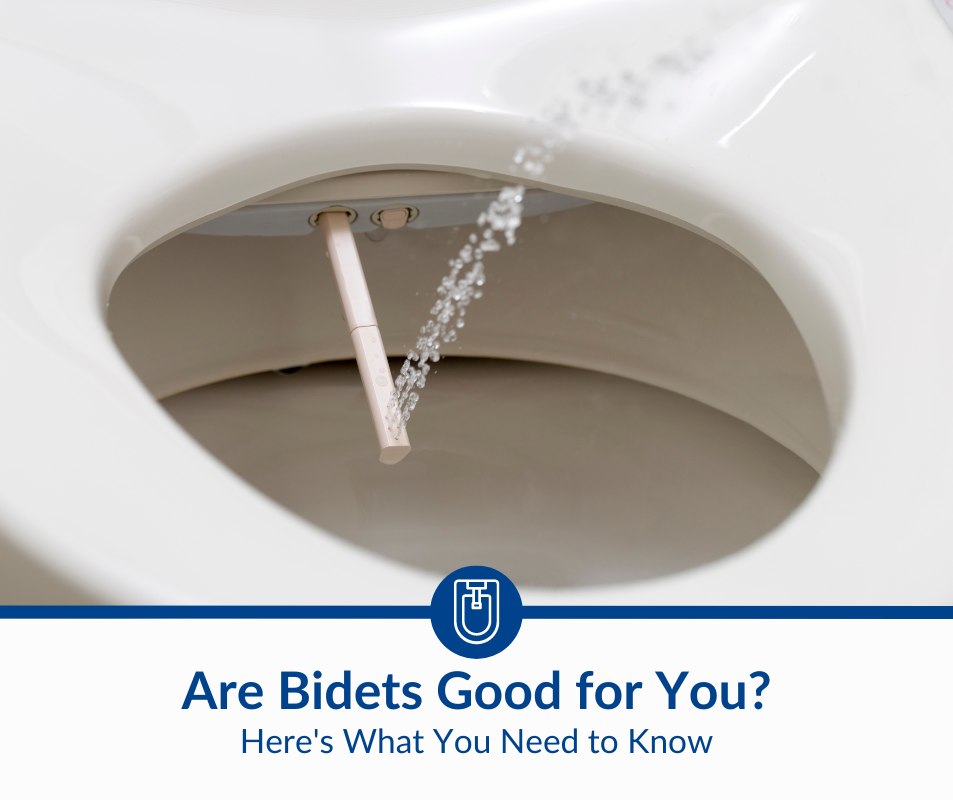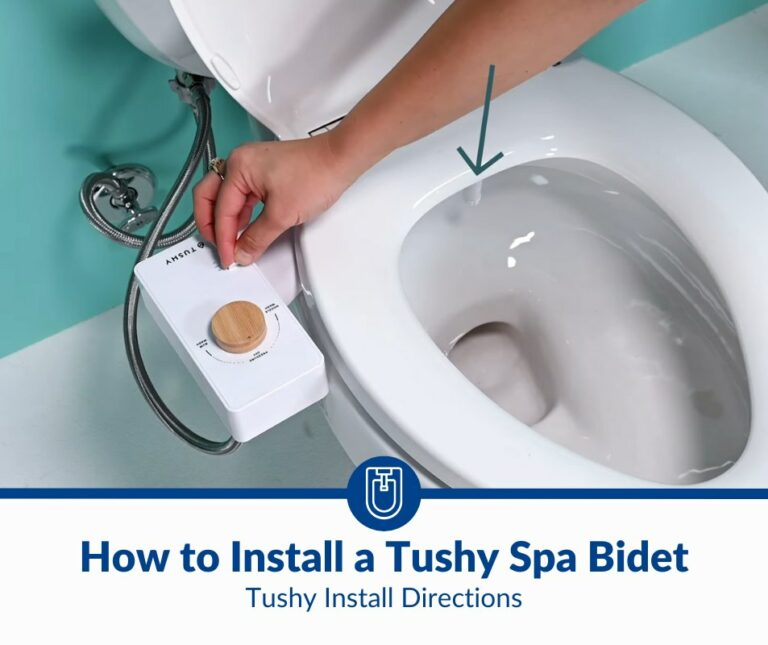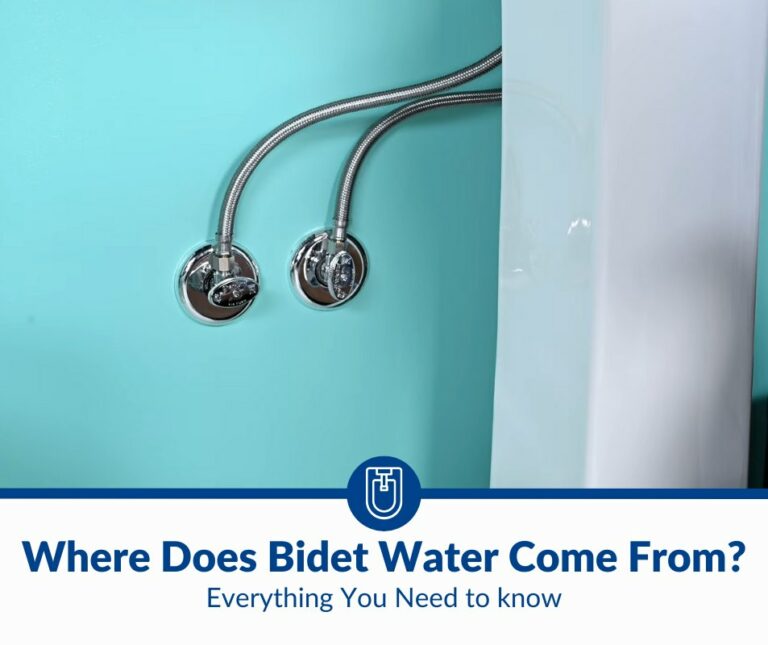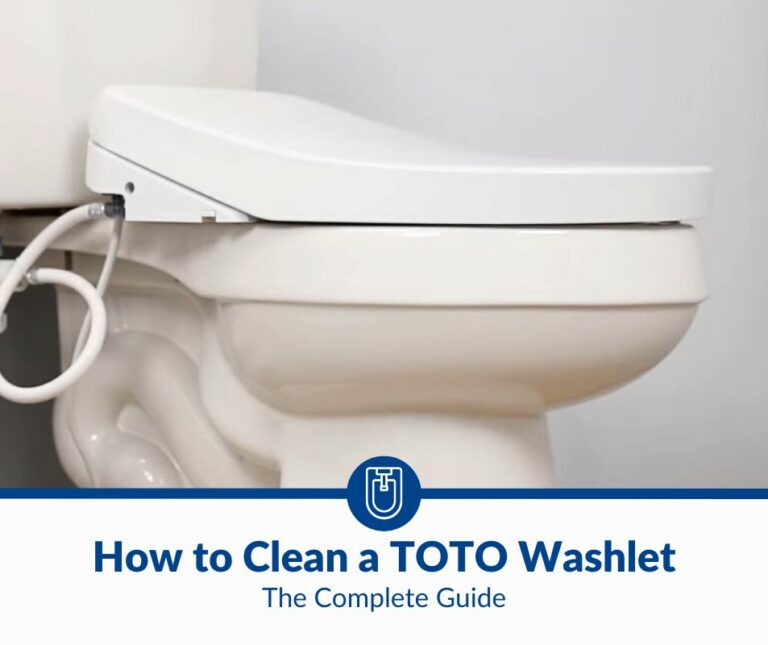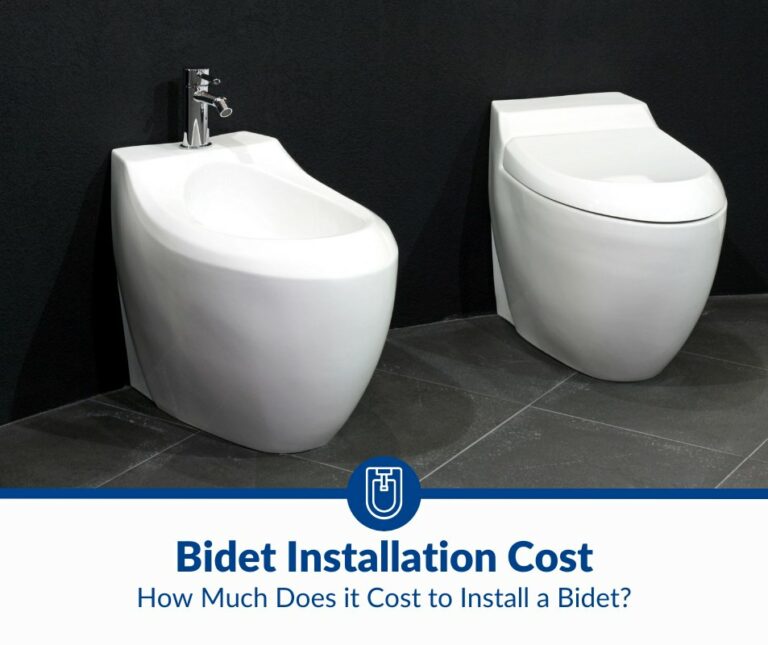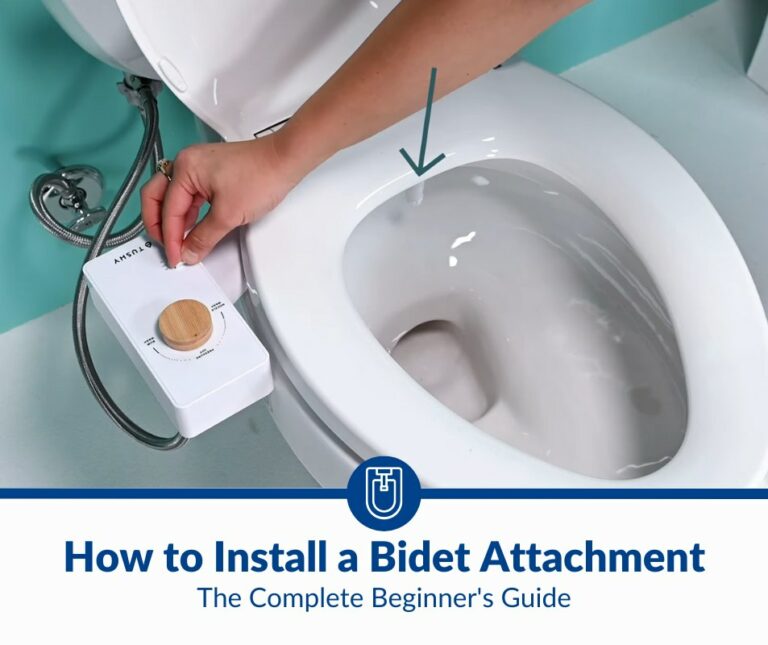Are Bidets Good for You? What You Need to Know
In many homes worldwide, bidets are a toilet essential. But are they as good as they’re endorsed to be? Or are you better off sticking with good old-fashioned toilet paper?
Bidets are good for you because they are hygienic and offer economic and environmental benefits. It is also better for those with mobility and anal problems. However, these benefits are often contingent on the proper use and maintenance of bidets.
Bidets are gaining traction for the convenience and comfort they offer. However, there are also disadvantages to this comfort room technology, as you’ll learn throughout this article. Near the end, I will briefly discuss some types of bidets and my recommendations if you want to get one.
Benefits of Using a Bidet
Bidets were invented in France and were named after the French word for a pony. That’s because people used the first bidets the same way they straddled horses.
Over time, the use of bidets spread worldwide. They’re prevalent in Japan, where high-tech versions include cool features like a blow-dryer.
As you can imagine, bidets are popular enough that toilet paper is a thing of the past in many places. But how beneficial is a bidet, exactly?
Bidets Help the Environment
You might think that bidets can seriously drain your precious water supply. However, compared to toilet paper, they’re more environmentally friendly overall.
Firstly, toilet paper costs a lot of water, electricity, and trees to produce. According to a Scientific American article, 36.5 billion toilet paper rolls are consumed annually in the United States. And take note: That’s just the United States.
To produce that amount of paper, you’ll need:
- 15 million trees
- 473,587,500,000 gallons of water
- 253,000 tons of chlorine
- 17.3 terawatts of electricity
The fact that a bidet doesn’t consume trees in its production makes a drastic difference already.
Moreover, if you compare toilet paper and bidets in terms of daily usage, bidets still win. Bidets only use 1/8th of a gallon or 1 pint of water every time. Meanwhile, a person typically uses 57 sheets of toilet paper daily, equivalent to 3.7 gallons of water.
Bidets Promote Better Hygiene
Bidets also promote better hygiene. That’s because:
- Fewer bacteria get transferred onto the hands. Studies show that using a bidet regularly can help reduce the number of bacteria in your urine.
- Water dislodges fecal matter more efficiently. When you use toilet paper, you usually smear fecal matter all over your private area. Also, there’s a chance you’ll get some of it on your hands. Water, on the other hand (no pun intended), can clean your anal area thoroughly without you having to put your hands anywhere near it. So, water (and, by extension, bidets) is more hygienic than toilet paper.
Read Also: Is Bidet Water Clean?
Bidets Alleviate Anal Symptoms or Conditions
You may have heard some bidet users claim that the proper use of bidets helps alleviate symptoms of anal conditions such as hemorrhoids and pruritus ani (anal itching). And there may be some sense to that.
For instance, hemorrhoid symptoms include:
- Swollen or irritated rectal veins
- Irritated or painful anus
- Bleeding
- Swelling
- Itching
Due to these symptoms, hemorrhoid sufferers may find it painful to wipe toilet paper on their sensitive area.
On the other hand, bidets allow you to control the water pressure and temperature, so doing your business is more comfortable.
Bidets may also be helpful for pregnant women. After they give birth, wiping their private area with tissue may feel uncomfortable — or, worse, cause bleeding. Thus, they may prefer bidets.
However, it’s important to note that bidets should not be seen as a treatment plan for anal conditions like hemorrhoids. There’s little science concerning that, and the “evidence” in favor of using bidets for health reasons is anecdotal at best.
Also, the health benefits of using bidets (if such things exist) depend mainly on proper usage and settings. Your condition may worsen if you frequently use your bidet at high temperatures or pressure.
Lastly, consult a doctor if you have chronic or severe anal symptoms. They can advise you on the best treatment plan and whether a bidet is appropriate for your situation.
Read Also: Can Using a Bidet Cause Infection?
Bidets Are User-Friendly for Those With Mobility Issues or Personal Preferences
A bidet is especially advantageous for people with mobility issues, such as those with:
- Arthritis
- Morbid obesity
- Parkinson’s disease
- Spinal cord injuries
- Old age-related issues
Those who have these conditions may find it difficult to use toilet paper since they have to reach around. But with bidets, they don’t have to strain as much, making it convenient and comfortable for them.
Moreover, you can choose a bidet based on your preferences. You can go for pricey models with features like an extensive water temperature range or air dryer. If you’re a frequent traveler, you can also pack a portable bidet.
Bidets Lead to Long-Term Savings
A bidet can seem expensive initially, especially if you go for the pricey, feature-rich models. However, in the long term, it does lead to more savings than toilet paper.
Specifically, Insider reports that people spend $40 (€38.41) to $70 (€67.21) annually on toilet paper. If you switch to a bidet, you can cut the amount you spend on toilet paper by around 75%. That’s equivalent to $30 (€28.81) to $52.5 (€39.38) worth of yearly savings.
That may not seem like much, but if you put that money into an account with interest, those savings can accumulate over time.
If you want to maximize your savings, choose affordable bidets that cover only the features you need. You don’t have to get the latest model with all the high-tech settings if you find them unnecessary.
Bidets Reduce Toilet Clogs
Did you know that hundreds of toilets get clogged by toilet paper? You can avoid or minimize that with a bidet (or, at the very least, minimal toilet paper use).
Not only do bidets reduce how often toilets clog, but they also reduce stress over such incidents. For one, you never have to worry about the exhausting struggle of using a plunger to relieve clogs.
Also, having fewer toilet clogs translates to savings. You don’t have to consult a plumber as often, and if you choose to DIY your toilet clog problem, there’s little chance of accidentally damaging your plumbing system.
Bidets Give You a Better Toilet Experience
Another significant benefit of a bidet is an improved toilet experience. Using a bidet gives assurance and comfort to people who don’t feel like toilet paper is enough to remove their fecal matter.
A bidet is also gentler on the skin, especially if you have the correct settings. So, always select the optimal pressure and temperature.
The only uncomfortable thing with using bidets might be the leftover moisture after usage. But that can quickly be dealt with using one to two sheets of paper. Even better, you can get a bidet with an air dryer if you have the budget.
Read Also: Do You Use Soap With a Bidet?
Bidets Avoid Toilet Paper Shortage
Being able to avoid the stress due to toilet paper shortage is an underrated benefit of bidets. When the pandemic struck in 2020, anxiety and excessive hoarding left many sellers bereft of toilet paper. Since everyone needs to wipe their behinds at least once a day, you can imagine what a serious problem that was.
Using bidets might not remove the need for toilet paper altogether. But it significantly reduces it, so you’ll avoid scrambling in desperation when another toilet paper shortage arises.
Downsides to Using a Bidet
Despite the long list of bidet benefits, it’s not perfect or a miracle toilet technology. There are significant downsides you’ll experience, but mostly if a bidet is misused.
Bidets Disrupt Beneficial Vaginal Bacteria
A primary concern with the regular use of bidets is they can disrupt good bacteria, such as Lactobacillus, residing in the vagina. These microorganisms are crucial in maintaining women’s health and preventing infections. If they are disrupted, the affected woman can become more vulnerable to various illnesses.
Such disruption occurs because of the way bidets work. Instead of water flowing from front to back, the angle usually makes it such that it goes from back to front. Moreover, intense water pressure may allow some of it to penetrate the private areas.
To avoid this disruption, you can do the following:
- Improve the bidet settings, especially the pressure level.
- Study the angle and water flow so you can position yourself optimally.
- Direct the water flow from front to back.
- Avoid bidets with feminine wash functions. The stream often penetrates the vagina itself, which is unnecessary and dangerous for you.
Read Also: Are Bidets Safe for Women?
Bidets Can Harbor Bacteria
While some claim bidets reduce bacteria, some research suggests otherwise. Bidet nozzles can be home to various species of bacteria like Staphylococcus aureus and Streptococcus.
For example, one study looked into bidets at hospitals and discovered that they could harbor antimicrobial-resistant bacteria, which can spread from one user to another. As you may have guessed from their name, these bacteria are often unresponsive to common antibiotics and can become dangerous if allowed to spiral out of control.
To avoid getting bacteria from bidets, you can do the following:
- Clean your home’s bidet regularly.
- Change filters at the manufacturer’s recommended schedules.
- Bring a portable bidet so you can avoid using public ones.
- If you have to use public bidets, clean the nozzles first before usage.
- Don’t bring the bidet nozzle too close to your body.
- Use the most appropriate pressure and temperature settings.
- Test a bidet before using it to familiarize yourself with the flow and angle.
Incorrect Bidet Settings Can Lead to Discomfort
If you set up the bidet yourself, several things could go wrong. For instance, you can install it incorrectly or set it in incorrect or inappropriate settings.
When you constantly use your bidet with the wrong settings, they can lead to the following issues:
- Too much water pressure can cause and worsen anal symptoms and conditions.
- Too high temperatures can scald or burn the butt.
- Too cold temperatures can cause you to jump and get into an accident.
- Increased pressure allows water to penetrate the rectum or vagina.
For that reason, it’s vital to consult professionals who are experts in installing bidets. They can teach you the proper way to use a bidet and help you adjust the settings correctly.
Excessive Bidet Use Can Lead to Anal Symptoms
A 2021 study by Akira Tsunoda discusses how extensive use of bidets led to the development of anal symptoms such as:
- Anal pruritus (anal itching)
- Anal incontinence (AI)
- Anal fissures
If frequent bidet usage gives you anal pruritus or AI, your doctor will likely advise you to minimize its usage or discontinue it altogether.
There Are Inconclusive Studies on the Effects of Bidets
Over time, studies have explored bidets and their impacts. Many of them turn to user anecdotes to understand aspects like the experience and benefits of bidets and whether bidets are much better than toilet paper.
However, most of these studies aren’t conclusive. Even they acknowledge that more work needs to be done to prove that bidets improve hygiene. Moreover, more research is needed to prove that bidets can disrupt or spread bacteria.
That said, whether or not there’s enough research on the subject, it’s essential to consider them all. Whether they talk about the pros or cons of bidets, they all have the same basic conclusion: Bidets must be appropriately used to maximize their benefits and keep the downsides to a minimum.
Is It Better To Wipe or Use a Bidet?
Based on anecdotes and the long list of benefits above, using a bidet is much better than wiping with toilet paper overall. You can avoid chafing, and it may be cleaner and more hygienic than toilet paper. But is that claim backed by scientific research?
The chafing claim may have some truth to it. Excessive wiping irritates the sensitive rectal skin, causing tiny cuts or abrasions. But as to whether bidets are cleaner and more hygienic – that warrants further study and discussion.
In an interview with The NY Times, Dr. John Swartzberg (a professor emeritus at the University of California – Berkeley) stated that there are not enough studies or data to support the idea that bidets clean butts better than toilet paper.
Moreover, studies can be contradictory. While some claim that bidets can relieve anal symptoms like itching, others suggest that bidets do the opposite. Some studies say that bidets are suitable for pregnant women, while others say they’re not.
Although bidets feel hygienic and more efficient, there hasn’t been any solid empirical research to date that backs that up. Therefore, the final decision of whether it’s better to wipe or use a bidet boils down to your preference.
Read Also: Do You Wipe After Using a Bidet?
Bidet Types and Recommendations
There are many types of bidets available:
- Stand-alone. This bidet looks like a low sink or porcelain toilet and is separate from the toilet bowl. As you squat or sit, the bidet sprays water onto your backside.
- Handheld hose. This is a practical and convenient option for those who already have toilets. You bring the hose towards your backside and press to release a stream.
- Toilet seat. This bidet comes with a toilet seat. You use a control panel or remote to select functions and release water from underneath the toilet seat.
- Bidet attachment. This works similarly to the toilet seat bidet (minus the toilet seat, of course), making it cheaper. To install it, all you have to do is attach it underneath your existing toilet seat.
- Travel/portable bidet. This bidet looks like and is as big as most water bottles and squirts water when squeezed.
Here are some of the best-selling Amazon products for each bidet type:
- Duravit 2283100000 White Bidet Floor Stand. This white ceramic bidet is stand-alone with one tap hole, overflow, tap platform, and floor standing. It’s medium-sized and has a limited lifetime warranty.
- Arofa Handheld Bidet Sprayer for Toilet. This handheld bidet allows toilet or wall mount installation. You can also choose between pressure levels (from gentle to jet spray), and it’s made of rustproof, anti-corrosion, and stainless steel materials.
- American Standard 5900A05G.020 Aqua Wash Non-Electric Bidet Seat. This bidet seat doesn’t consume electricity and comes with self-cleaning dual nozzles. The seat is also designed to slow-close to avoid slamming.
- LUXE Bidet Neo 185 (Elite) Non-Electric Bidet Toilet Attachment. This easy-install bidet toilet seat attachment comes with a self-cleaning dual nozzle, easy pressure adjustment, nozzle guard gate, and an 18-month warranty. You can install it yourself on any standard-sized two-piece toilet.
- Cynpel Peri Bottle. This portable bidet is specially designed for postpartum individuals. It comes with a retractable nozzle, travel bag, and nozzle cover. It’s easy to squeeze and has a 12 oz (0.35 L) capacity.
Read Also: Are Bidets Worth It?
Final Thoughts
Bidets offer users many benefits and comfort that make them especially good for you.
However, you must use them carefully, establish the correct settings, and regularly clean them to enjoy the advantages and avoid downsides. Otherwise, you’d risk bacterial infection, anal symptoms, scalding, and other discomforts.

